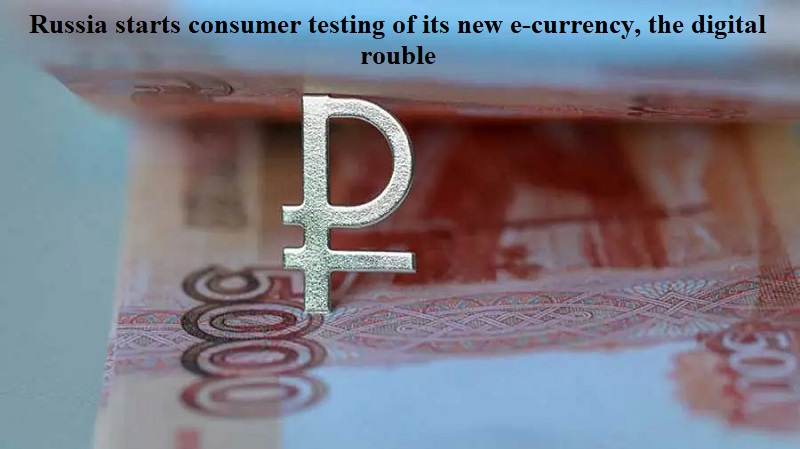
On Tuesday, Russia initiated the testing of its newly introduced digital currency, the digital rouble, among consumers. Through the implementation of blockchain technology, the country, which has been embroiled in a conflict with neighboring Ukraine for nearly 540 days, aims to navigate around international sanctions while also exerting greater control over its population.
This trial phase of the digital rouble aligns with the Russian currency’s decline to its lowest value against the dollar since March 2022, a period marking the commencement of its military campaign in Ukraine.
According to AFP, Russia had been contemplating the launch of a digital currency for a considerable time; however, the process gained momentum in response to Western sanctions that curtailed the nation’s access to the global banking system.
Russia now joins the league of 20 other countries globally that have embarked on the pilot phase of a digital currency, with the objective of enhancing its financial system’s flexibility and mitigating the impact of international sanctions.
Mikkel Morch, the founder of the cryptocurrency-focused investment fund ARK36, explained to the news agency that the digital currency’s introduction will enhance Russia’s capability to evade sanctions.
In the aftermath of its military offensive, Russia encountered multiple sanctions, including measures that excluded several Russian banks from the primary system utilized for international transactions. This vulnerable position compelled Moscow to explore innovative means of ‘de-dollarization’.
Morch indicated that the digital currency would allow Russia to bypass traditional banks and their constraints. He pointed out that blockchain technology is less susceptible to sanctions and attacks, characterizing the launch as a component of the geopolitical struggle between nations supportive of the dollar and those opposed to it.
Morch suggested that the launch could grant the government significant control over its citizens and potentially function as a tool for ultimate social control.
Certain non-governmental organizations (NGOs) have also expressed reservations. The Atlantic Council warned that in the wrong hands, the data generated by the digital currency could be exploited for surveillance of private transactions.
Reportedly, Russians themselves remain skeptical and unconvinced. A survey conducted by the state-owned pollster VCIOM revealed that around sixty percent of Russians possess a “limited understanding” of the government’s motivations and are hesitant to adopt the new currency.

Post Your Comments